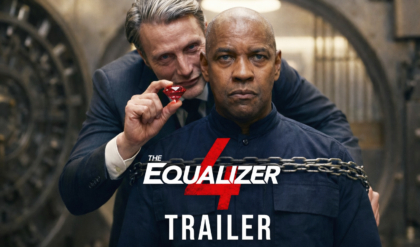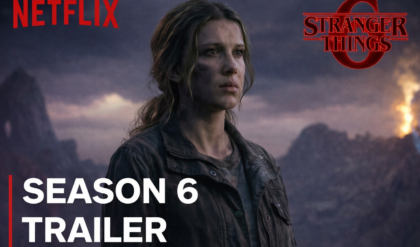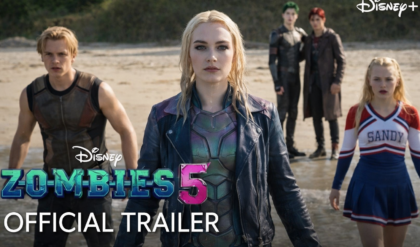Ubisoft’s Assassin’s Creed Shadows: A Bold Reimagining or a Cultural Misstep?
Ubisoft’s Assassin’s Creed Shadows, the highly anticipated installment set in feudal Japan, has ignited a global debate. Released on March 20, 2025, the game promised to deliver an immersive experience in the Sengoku period, a turbulent era of warring feudal lords. However, its creative choices—particularly the depiction of Yasuke, a historical African figure portrayed as a samurai, and other perceived historical inaccuracies—have drawn both praise and fierce criticism. Some accuse Ubisoft of altering Japanese history to cater to modern sensibilities, while others defend the game as a work of historical fiction meant to entertain and inspire. This article dives into the controversy, exploring the game’s development, the historical context, and the polarized reactions it has provoked.
The Premise of Assassin’s Creed Shadows
Assassin’s Creed Shadows marks the franchise’s first foray into Japan, a setting fans have clamored for since the series began in 2007. Set in the late 16th century, the game follows two protagonists: Yasuke, a Black retainer who served under warlord Oda Nobunaga, and Naoe, a fictional Japanese shinobi from the Iga clan. The dual-protagonist structure allows players to switch between Yasuke’s brute-force samurai combat and Naoe’s stealth-based ninja gameplay, set against a visually stunning open-world Japan with dynamic seasons and weather.
Ubisoft marketed Shadows as a blend of historical inspiration and creative liberty, a hallmark of the Assassin’s Creed series. The franchise has always woven real historical figures—like Leonardo da Vinci or Cleopatra—into fictional narratives involving the eternal struggle between Assassins and Templars. Yet, Shadows has faced unique scrutiny for its portrayal of Yasuke and certain cultural elements, with critics claiming Ubisoft prioritized modern values over historical fidelity.
The Yasuke Controversy
At the heart of the debate is Yasuke, a historical figure whose life is sparsely documented. Believed to have arrived in Japan around 1579 with Portuguese Jesuit missionaries, Yasuke entered the service of Oda Nobunaga, one of Japan’s most powerful daimyo. Historical records, primarily from Jesuit accounts, confirm his presence and Nobunaga’s fascination with him, but details about his role are vague. Some historians, like Yu Hirayama, argue Yasuke was granted samurai status, while others contend he was likely a retainer or servant, not a warrior in the traditional samurai class.
In Shadows, Ubisoft portrays Yasuke as a full-fledged samurai, wielding katanas and engaging in epic battles. This decision sparked accusations of historical revisionism, particularly among Japanese critics and gamers. A petition launched by Shimizu Toru in June 2024, which garnered over 89,000 signatures, called for the game’s cancellation, claiming it “misunderstands the essence and role of samurai” and risks promoting “Asian racism” by exaggerating Yasuke’s significance. Japanese politician Satoshi Hamada even raised concerns in parliament, questioning Ubisoft’s research and suggesting the game could misrepresent Japanese culture.
Critics argue that Ubisoft’s choice reflects a push for diversity, equity, and inclusion (DEI) to appeal to Western audiences. Social media posts on platforms like X have amplified this sentiment, with some users mocking Ubisoft for allegedly “rewriting history” to make it “woke.” One X post quipped, “Ubisoft shopped for a historian to justify a ‘diverse’ feudal Japan,” reflecting skepticism about the game’s authenticity. Others pointed out that featuring Yasuke as a protagonist over a Japanese male samurai feels like a deliberate nod to modern political agendas.
However, defenders of Ubisoft argue that Yasuke’s inclusion is both historically plausible and narratively compelling. Creative director Jonathan Dumont explained that Yasuke’s status as a foreigner allowed players worldwide to see Japan through an outsider’s eyes, akin to John Blackthorne in Shogun. Historian Yu Hirayama’s research supports the idea that Yasuke was elevated by Nobunaga, potentially as a samurai, making Ubisoft’s portrayal a reasonable interpretation. Fans on forums like Reddit have also noted that Assassin’s Creed has never been a historical documentary—previous games featured Leonardo da Vinci building tanks and Margaret Thatcher as a Templar, yet those choices drew less outrage.
Cultural Sensitivities and Historical Inaccuracies
Beyond Yasuke, Shadows faced criticism for other perceived inaccuracies. Early promotional materials included a flag from a modern Japanese reenactment group, used without permission, prompting an apology from Ubisoft. Gameplay trailers showed architectural errors, like square tatami mats (traditionally rectangular) and Chinese-influenced building designs in a Japanese setting. A preview scene depicting Yasuke destroying an altar in Itatehyouzu Shrine, a real Shinto site, drew ire from religious groups and the shrine’s caretakers, who claimed Ubisoft failed to seek permission. This led to a day-one patch making religious items indestructible and reducing bloodshed in sacred areas.
Japanese critics, including YouTuber Shohei Kondo, argued that such missteps reflect a lack of respect for Japan’s heritage. Kondo highlighted Ubisoft’s marketing, which initially touted Shadows as historically authentic, citing game director Charles Benoit’s claim that players would “learn about this fantastic time period.” When fans pointed out errors, Ubisoft clarified that the game is “historical fiction,” a stance some saw as backpedaling. Social media erupted with comments like, “If you’re profiting from Japan’s history, at least respect it,” echoing broader concerns about cultural appropriation.
Yet, Japanese reviews post-launch painted a more nuanced picture. Outlets like Dengeki and Game Watch praised the game’s lush landscapes and immersive atmosphere, with Gamer noting that “towns feel full of life, as if you’re really traveling through Japan.” While some critics, like Dengeki, acknowledged minor historical deviations—such as the anachronistic appearance of Ukita Naoie or the state of Osaka Castle—they emphasized that these did not detract from the overall experience. The game’s seasonal changes and detailed environments evoked nostalgia for rural Japan, suggesting Ubisoft captured the spirit of the Sengoku period, if not every factual detail.
Ubisoft’s Response and Development Process
Ubisoft has navigated this controversy with a mix of apologies and clarifications. In July 2024, the development team issued a statement to the “esteemed Japanese community,” acknowledging concerns about promotional materials and reaffirming their collaboration with historians, researchers, and Ubisoft Japan. They stressed that Shadows is not a factual recounting but a fictional narrative designed to spark curiosity about history. After the shrine controversy, Ubisoft’s day-one patch addressed specific grievances, a move some saw as reactive but others viewed as a good-faith effort to listen.
Behind the scenes, Ubisoft Quebec invested heavily in recreating feudal Japan. Art director Thierry Dansereau described the challenge of rendering dense forests, towering castles, and seasonal shifts, made possible by current-gen console technology. The team consulted Japanese cultural experts and made research trips to ensure authenticity in architecture, clothing, and customs. Actor Tongayi Chirisa, who voiced Yasuke, was chosen for his ability to embody a “student’s mentality,” reflecting Yasuke’s journey of adapting to a foreign culture.
Despite these efforts, Ubisoft’s history of cultural missteps haunted Shadows. The unauthorized use of a reenactment group’s flag and the shrine incident fueled perceptions of carelessness. Some critics argued that Ubisoft’s DEI consultants, known for advising on progressive themes, influenced decisions like Yasuke’s prominence, though Ubisoft denied external control over creative choices. The game’s release date, coinciding with the 30th anniversary of the 1995 Tokyo sarin gas attack, was another oversight that drew accusations of tone-deafness, though Ubisoft claimed it was unintentional.
The Bigger Picture: Historical Fiction vs. Accuracy
The Shadows controversy raises broader questions about the role of historical fiction in gaming. Assassin’s Creed has always taken liberties—depicting Cleopatra as an Assassin or the Pope as a villain—yet Shadows faced disproportionate backlash, partly due to Yasuke’s race and the cultural weight of Japan’s history. Defenders argue that historical accuracy is secondary to storytelling in a series where ancient aliens and secret societies are canon. As Den of Geek noted, “For every detail the game gets ‘wrong,’ there are thousands it gets right,” pointing to the game’s vivid portrayal of 16th-century Japan.
Japanese audiences, while critical of specific elements, have largely embraced Shadows, with over 2 million players worldwide shortly after launch. Reviews suggest that gamers value the game’s immersive world and compelling characters over minor inaccuracies. Naoe, in particular, has been lauded for her nuanced arc, rooted in the Iga clan’s traditions. The game’s “immersive mode,” offering Japanese and Portuguese voice acting, further enhances its cultural depth.
Conclusion: A Game Divided
Assassin’s Creed Shadows is a testament to Ubisoft’s ambition and the challenges of balancing creativity with cultural sensitivity. Yasuke’s portrayal, while grounded in historical possibility, became a lightning rod for debates about representation, authenticity, and the ethics of reimagining history. For every critic decrying Ubisoft’s “modern agenda,” there’s a player captivated by the game’s breathtaking rendition of feudal Japan. As the dust settles, Shadows stands as both a thrilling adventure and a cautionary tale about navigating the complexities of global storytelling. Whether it’s a triumph or a misstep depends on who you ask—but it’s undeniably got everyone talking.





